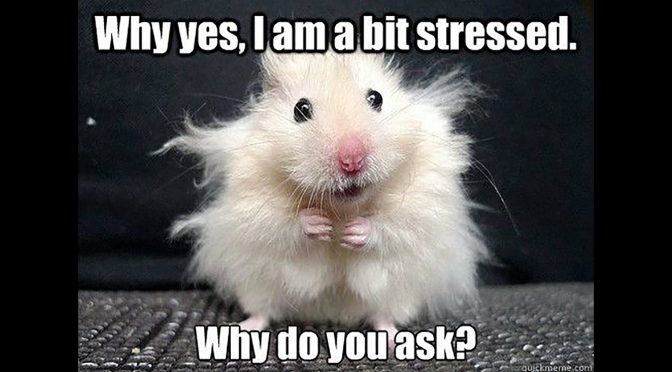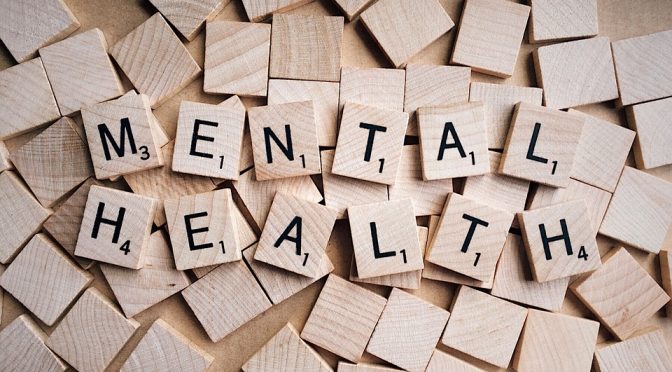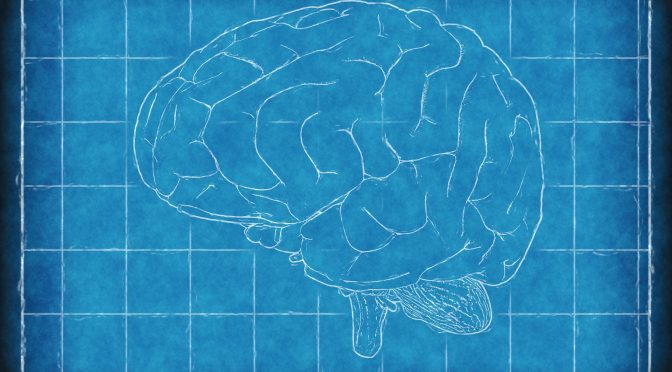As a 6th year student, I’ve benefitted quite a bit from listening to students before me when they talked about successful time management. This article is meant to be more than just an article on time management, though; it’s also an article about resilience, and coping strategies, and how all of it affects our work. And maybe how, when everything else fails, having a little bit of a routine can help.
In Man’s Search for Meaning, Victor Frankl wrote that “people have enough to live by, but nothing to live for; they have the means, but no meaning” [1]. We are taught as scientists that it is the science itself that should drive us, that if we are passionate enough about science, if we’re curious enough, we’ll succeed. Anyone who fails must not have had enough passion, we’re told.
I don’t believe that’s true.
During this pandemic, it’s so easy for academia to continue with a mantra akin to “passion will drive science forward.” To me, it seems much more about resilience, defined in the social sciences as a measure of the ability to cope with stress [2]. People who are resilient recognize the limits of their control, have an action-oriented approach, are patient and flexible, and have goals (perhaps life goals?), among other things [2, 3]. While some of our reaction to stress can be attributed to genetics, there are certain skills that can be cultivated to increase our resilience [4]. One example is increasing the amount of active coping, such as exercise, looking for social support, mindfulness, or reframing stressors more positively [4-6].
I realize that this can sound strange to us as biomedical scientists rather than social scientists, but there is a body of literature (some of which is cited here), suggesting that resilience can protect employees from work-related stress, and that it could explain why some people thrive in environments where others burn out [7]. Right now, we’re in an environment where many of us will burn out—if not from the stress of graduate school, then from the added stress of a pandemic. It is critical, then, that we foster resilience in populations of graduate students who have been shown to experience higher levels of depression and anxiety than the larger population (I’ve written about this here).
The link between resilience and having a schedule/maintaining a routine may not be immediately obvious. It turns out that many of the predictors of resilience (goals, social support, personal reflection included in mindfulness study, etc.), as well as having a meaning in life, are also predictors of happiness [8]. Maintaining routine also gives us a sense of stability. Research on Post-Traumatic Stress Disorder (PTSD) has shown that avoidance coping strategies, including reducing routine activities to avoid triggering places, was a significant predictor for functional impairment [9]. Much research is devoted to the effects of family routines and daily routines on child development, but much less is discussed regarding the effects of these things on adult individuals [10]. I think, however, that some level of routine is good for all of us, even if that routine consists mainly of going to work and coming home again. Routines help us build healthy habits.
Perhaps that’s why so many of us have struggled during this pandemic. Academic science is by nature a flippy-floppy, unstructured business, and when COVID-19 took away the last piece of structure—going into the lab every day—many of us were left wondering what to do with all that new free time. The shutdown really gave me a chance to codify what works for me as a daily routine and what doesn’t. Give some of these a try!
Find a space to work that isn’t in your bedroom
Not all of us have the luxury of a personal home office, but it’s best to keep work things out of your sleep space. Associating your bedroom with work, especially stressful work, can blur the lines of work-life balance. Just because we’re working from home, that doesn’t mean we need to compromise our boundaries!
Make time to exercise
Personally, if I don’t exercise first thing in the morning, it doesn’t happen. Without exercise equipment at home, bodyweight exercises or outdoor cardio are going to be your best friend. Medicine in Motion has a nice workout library that’s worth checking out (as an added bonus, Tufts has its own chapter!).
Do your normal morning routine—even if you’re not going out
Shower, brush your teeth, get dressed, eat breakfast. Make it feel like you’re getting ready to work! It’s so tempting to stay in pajamas with a blanket and take Zoom calls from bed, but even if your camera is off and your labmates can’t see you, you won’t feel prepared to work and your brain won’t engage in it. Pretend that you’re going into the lab and bring your A-game to the zoom-room.
Normalize your sleep schedule
Wake up and go to bed at the same time each day. Keeping a consistent sleep schedule is referred to as “sleep hygiene.” Sleep hygiene is critical for maintaining your body’s circadian rhythm, which tells you when to wake up and when to wind down for the day. If you constantly switch what time you’re waking up or going to bed, your body won’t know when to help you wake up on any given day. This goes hand-in-hand with working outside your bedroom and breaking any association you may have between work and sleep. It’s actually best to do this every day, even when there isn’t a global pandemic (and yes, even on weekends!).
Find a little meaning (outside of work)
If you have a pet, it could be as simple as feeding your pet every morning and making sure they are getting the exercise and playtime they need. It might be caring for houseplants, or checking in with your parents or a close friend to make sure they are doing okay. Or perhaps living out your dreams of cooking eggplant in every possible style, just to say you’ve done it. Or crocheting baby hats for preemies in the NICU. Find something that, when you do a little bit each day, makes you feel like you accomplished something that impacts the world around you.
Expand your support network
Humans thrive on social interaction (even the most introverted of us enjoy the occasional chat). Reach out to some old friends, join a support group. Check in on people. If you’re looking to connect with people, CoronaBuddies is still available! It can be helpful to use the human inclination to follow a schedule here: set a weekly time to zoom with a friend, so that no matter how busy or isolated you otherwise feel, you’ve got that weekly visit waiting in the wings.
Cut yourself some slack…
Know that it’s totally okay if you aren’t as productive as you were before the pandemic. None of us are, especially with density restrictions and having to work around each other in a way that we didn’t have to before. Give yourself a mental health day and binge some of your favorite TV shows, talk to a friend, or cook some good food. Know that 100% effort at work may not give you 100% of the results you may have gotten pre-pandemic.
…But don’t let your guard down
This is a marathon, not a sprint. It’s so tempting to take your mask off—it’s hot, it’s itchy, it’s uncomfortable, it’s hard to breathe—but we’re still in the thick of the pandemic. The vaccine is coming, but until enough people have been vaccinated, it’s not over. Keep on keeping on with mask wearing, social distancing, and hand sanitizing.
And finally, know where to find help
Reach out to the Student Wellness Advisor, Sharon “Snaggs” Gendron, if you feel you could benefit from additional support. She can refer students struggling with mental health to clinicians who can help. Other places to find help are the Talk One2One Student Assistance Program, BetterHelp, iHope, and the University Chaplaincy.
In the event of a crisis, the National Suicide Prevention Lifeline is available 24/7 at 1 (800) 273-8255.
References:
[1] Frankl, Victor. Man’s Search for Meaning. Beacon Press, Boston, 1946.
[2] Conner and Davison. (2003) Development of a new resilience scale: The Connor-Davidson Resilience Scale (CD-RISC). Depression and Anxiety 18:76-82.
[3] Friborg et al. (2006) A new rating scale for adult resilience: what are the central protective resources behind healthy adjustment? International Journal of Methods in Psychiatric Research 12(2): 65-76.
[4] Southwick et al. (2005) The psychobiology of depression and resilience to stress: Implications for prevention and treatment. Annual Review of Clinical Psychology 1:255-91.
[5] Callaghan. (2004) Exercise: A neglected intervention in mental health care? Journal of Psychiatric and Mental Health Nursing 11: 476-483.
[6] Galante et al. (2018) A mindfulness-based intervention to increase resilience to stress in university students (the Mindful Student Study): a pragmatic randomized controlled trial. Lancet Public Health 3:372-81.
[7] Grant and Kinman. (2012) Enhancing wellbeing in social work students: building resilience in the next generation. Social Work Education 31(5):605-621.
[8] Bailey and Fernando. (2012) Routine and project-based leisure, happiness, and meaning in life. Journal of Leisure Research 44(2):139-154.
[9] Pat-Horenczyk et al. (2006) Maintaining routine despite ongoing exposure to terrorism: a healthy strategy for adolescents? Journal of Adolescent Health 39:199-205.
[10] Schultz-Krohn. (2004) The meaning of family routines in a homeless shelter. American Journal of Occupational Therapy 58:531-542.





